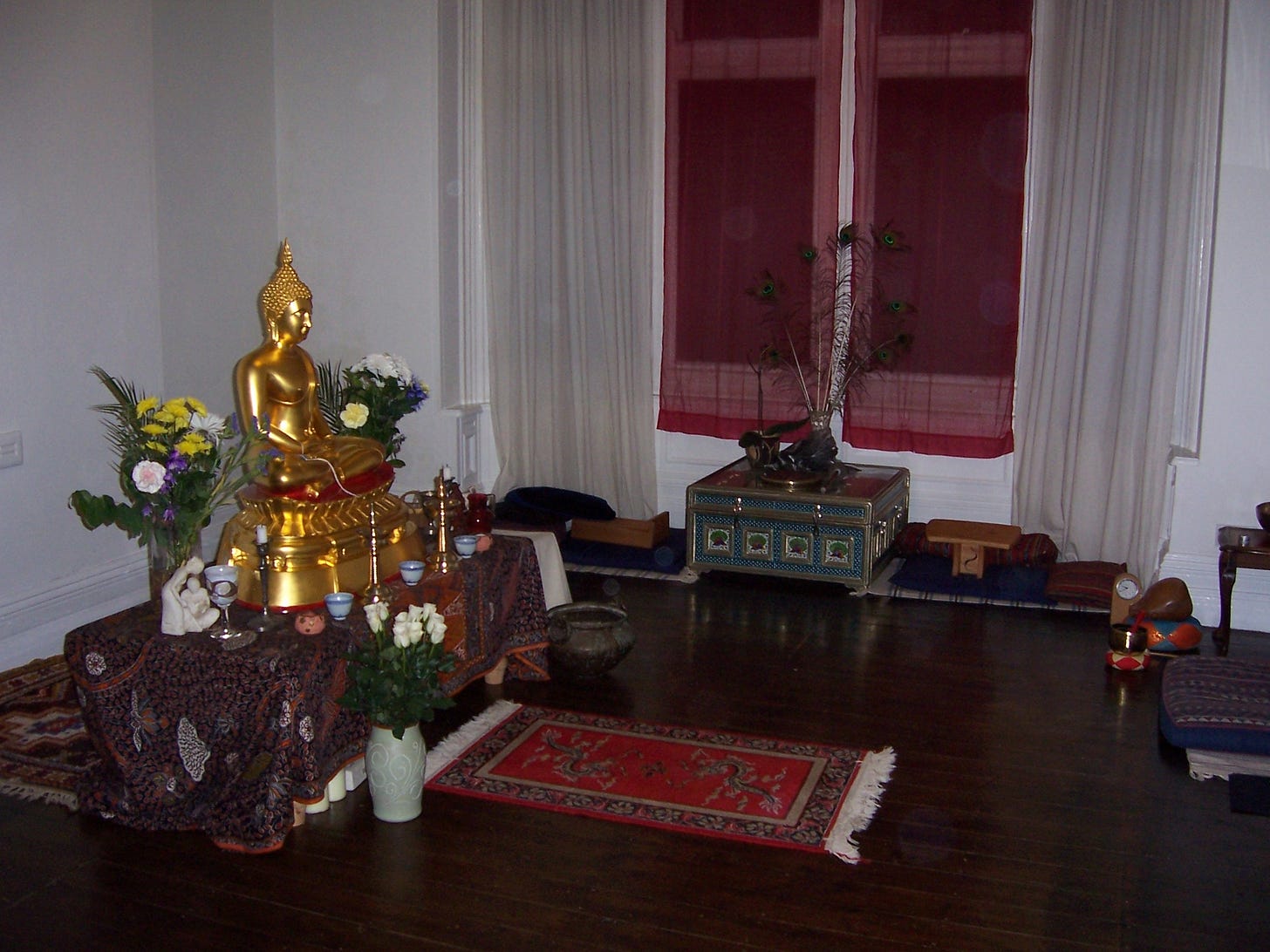Looking to change yourself? I have something else to offer
Discovering the gift of self-compassion
I was standing outside the side door of the Buddhist House in Narborough.
It was a beautiful autumn day. The sun was shining. There were a few fallen leaves on the gravel driveway from the big lime tree in the garden.
I was struck by how smooth and shiny the paint on the door was. I had been here before, but this was different. I was going to move in and train as a Buddhist monk.
I was a little nervous. I was a little excited.
I wasn’t happy in my life and I had a strong sense that I needed to change. I thought that stepping through this doorway would be stepping through to the new version of myself that I wanted to be.
I imagined that I could just drop my issues at the door, step through and be that new person. Instant change.
Of course it didn’t happen like that. I did make some progress in the four years that I lived there. I became a little more self-aware. A little less depressed. I became less frozen and disassociated.
But I also discovered something more important.
I discovered that however much progress I had made with my issues, there was always the possibility of compassionate acceptance.
It was like finding a magic spell. Nothing changed, and everything changed.
I was still the same anxious, depressed and prone to disassociation person. And there was a place to stand where I could feel affection for myself and others.
It felt like moving from one dimension into three dimensions.
I had thought I was standing on a thin line, on which I could either make progress or fall back. I had thought there was only getting better or getting worse. That wasn’t true. That isn’t true.
There is so much space around the line.
And that is the space of compassion and wisdom. Of seeing clearly what is. Of seeing my own flaws and of feeling kind towards myself.
Now, as a therapist and a Buddhist minister, I keep this whole picture in mind. The line of progress and all the space around that line.
Self compassion in therapy
It’s especially important to remember this in my therapy work.
People come to see me to make real change. They want to feel better and make different choices and sometimes there’s a real urgency with that.
That work is of change important. Moving along the line of progress is important and I see that progress happening over and over again.
And part of what we discover along the way is all of that space at the side of the line.
Discovering that space is essential to the work.
For two reasons.
First, ironically, the more we can hang out in the place of ‘no progress’ the more likely positive change is to happen.
The more we want to push forward, the more the parts of us that don’t want to change push back. If those resistant-to-change-parts didn’t exist we’d have changed already!
Stepping off the line brings compassionate acceptance. As we feel that towards all the different parts of ourselves they begin to relax. Then it becomes possible to step on to the line and we find we’ve also taken another step forward.
Secondly, stepping off the line of progress is a profound experience in and of itself. Compassionate self-acceptance doesn’t need to lead to progress in order to be important.
It can feel like such a relief to step in to that place. And it feels like coming home.
Just as we are
We are all lovable just as we are. There is a place to stand where we can really begin feel that.
That moment in front of the door of the Buddhist House was nearly twenty years ago. Since then I have continued to make progress with my own mental health, I’m happier and more relaxed. I have more confidence and clarity. And there are always things to work on.
And regardless of what there is to work on, whether I make progress or whether I fall back, the space around the line is always there. There is always the possibility of stepping into compassionate self-acceptance.
I’m reminded of Suzuki Roshi’s words, “Each of you is perfect the way you are ... and you can use a little improvement.”
Kaspa Thompson has space for new therapy clients right now.
They are a Buddhist minister and an IFS therapist and supervisor. If you are interested in therapy with Kaspa check out their website, or drop them a line.
With Satya Robyn they co-wrote the book Just As You Are: Buddhism for Foolish Beings.




